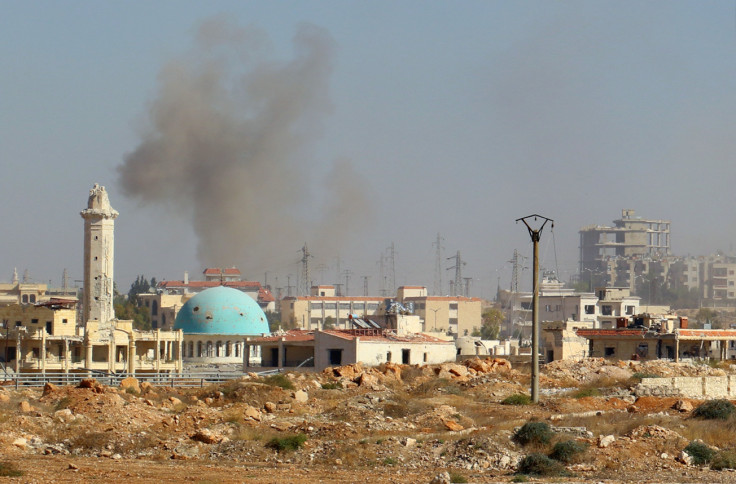The clock is ticking for Aleppo as civilians and fighters defy Russian ultimatum
The people of eastern Aleppo don't trust government forces and have so far rejected offers to leave their homes.
The Russian and Syrian forces have begun a 10-hour-long suspension of fighting on the besieged eastern part of Aleppo. The so-called "humanitarian pause" is meant to allow civilians and fighters to leave the city.
Busses were shown gathering along Castello Road, one of the eight corridors for safe passage the pro-government forces claim to have arranged. The Russian Defence Ministry has organised a series of live webcasts from the exit passages to monitor the "insurgents' withdrawal from Aleppo," as the website describes it, but the images mostly show empty streets. One of the checkpoints displays an imposing portrait of Syrian President Bashar Al-Assad.
Leaflets reportedly dropped on civilians on 3 November outlined instructions as to how to approach the checkpoints, such as carrying personal documents and approaching cautiously, leaflet in one hand and child in the other, turning around slowly to show there are no explosives.
But just like they refused to leave during the previous humanitarian break in October, the people of eastern Aleppo are not willing to leave their homes as they do not trust the government forces.
"We will not give up the city of Aleppo to the Russians and we won't surrender," Zakaria Malahifji of the Fastaqim rebel group told Reuters. Malahifji also said there were no safe exit corridors, as Russia had stated. "It's not true. Civilians and fighters are not leaving. Civilians are afraid of the regime, they don't trust it. And the fighters are not surrendering," he said.
According to Save the Children, it is highly unlikely that the humanitarian break will actually allow for aid to be brought into the besieged area, or for casualties to be evacuated before the fighting resumes, since the corridors proposed were not negotiated in conjunction with the UN and International Committee of the Red Cross.
Sonia Khush, Save the Children's Syria Director, said in a statement: "It is desperately worrying that military resources are being replenished while it appears that no medical evacuations have taken place, nor has any aid reached the besieged city."
Intelligence reports about the strengthening of Russian Mediterranean fleet suggest Moscow is preparing a new major assault on the eastern part of the city. The first deputy chairman of the defence and security committee in the upper house of Russia's parliament Franz Klintsevic spoke to Russian newspaper Izvestia in October about Moscow's plans for the city.
"After the humanitarian break, the cleaning will begin," he said, adding: "But at least it will be hard to accuse Russia of not caring about the civilian population."

In the western part of Aleppo, however, the fighting continues. Rebel groups fired shells and detonated three large car bombs near pro-government forces on the western edge of Aleppo on 3 November, killing at least a dozen civilians, according to the Syrian Observatory for Human Rights.
The United Nations special envoy for Syria, Staffan de Mistura's office has said that it was "shocked and appalled by the high number of rockets" targeting both civilians as well as the army.
© Copyright IBTimes 2025. All rights reserved.






















